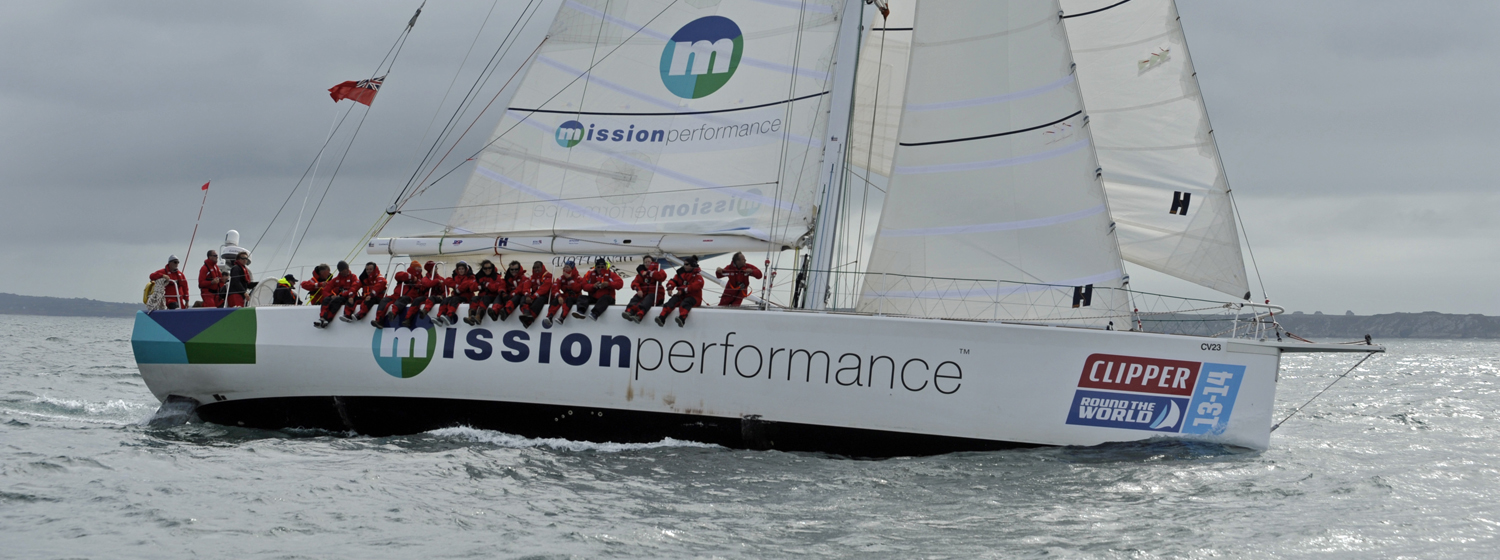Mission Performance
Business development, Employee engagement, Learning and development, Research and development, Shared values

- To develop and run two global development programmes:
- A unique coaching skills programme for a global client seeking a genuine coaching culture across its organisation.
- A client focused training programme developed from an in-depth study of unique performance lessons learnt from the Clipper Race.
COACHING SKILLS PROGRAMME:
- A long-term strategic coaching framework was developed based on three days of classroom coaching, paired with experiential learning through sailing. Starting as novice sailors, participants could coach each other to sail faster on board a 70-foot Clipper Race yacht by the end of the programme.
- The practice of peer-to-peer coaching was then integrated into the client’s business culture.
- Sailing proved to be a great platform for coaching and teamwork, with managers coaching each other in pairs in order to make the boat sail faster.
RESEARCH STUDY:
- The partnership gave Clipper Race crews and Skippers a focus on collaboration and team alignment.
- A coaching culture became apparent across all yachts.
- Skippers and teams which embraced Mission Performance’s learnings performed best during the race.
- Results of the sessions were also fed back into the Mission Performance development programmes to educate clients, as well as future Clipper Race Skippers and crew.
- The lessons learnt during the eleven month study were then applied to develop best practice in business.
COACHING SKILLS PROGRAMME:
A three-day programme was rolled out to create a ‘generation bridge’ at a global oil field services company. The programme used lessons from high performing teams to deliver a practical coaching framework and tools, which Mission Performance named ‘The World Class Basics’.
The World Class Basics programme was embraced by the Clipper Race management team in the 2013-14 edition of the race to enhance the training of the Clipper Race Skippers.
High performing managers were challenged to learn the theory then put their coaching skills into practice through an experiential sailing challenge on board Mission Performance Clipper Race yacht during six race stopovers.
Participants were evaluated throughout the programme by Mission Performance facilitators, who provided feedback on their performances.
RESEARCH STUDY:
The research project, studying the winning behaviours of teams operating in adversity, offered an opportunity to study both the Skippers as leaders, and crew as team members.
The study ran in every major stopover port on the Clipper 2013-14 Race route, and started by collating positive and negative crew feedback collected in both one-to-one and group sessions. The resulting insights were then delivered to the Skippers, with mentoring guidance and advice offered to help improve team performance and harmony. This allowed each of the Skippers the opportunity to improve and build on any specifically identified leadership behaviours.
We considered many alternatives to the Clipper Race but none were prepared to understand the hard commercial objectives we needed to achieve as a result of our investment.
